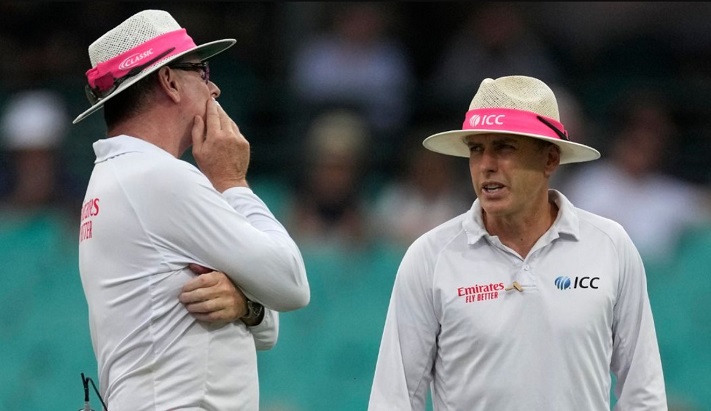|
Listen to this article
|
The best cricket umpires possess a combination of qualities that include exceptional decision-making skills, consistent application of the rules, a profound knowledge of the game’s intricacies, and effective communication with players. You can use the site or app 4RaBet for a bet on the many sports events right now.
Their ability to make accurate and fair decisions in real time, coupled with a deep understanding of the rules, sets them apart. Consistency in decision-making throughout matches or series is crucial for gaining respect and trust from players and fans alike. Ultimately, a successful umpire maintains composure, remains impartial, and contributes to the integrity of the game.
The 10 Best Umpires In Cricket In The World
Among the thousands of umpires known throughout the history of cricket, there are only a few who are called the best. Here are the most famous 10 of them.
Dickie Bird (England)
Dickie Bird, born in 1933, is a legendary English umpire known for his distinctive white hat and excellent decision-making. He officiated in international matches from 1973 to 1996, earning a reputation for fairness, composure, and a deep understanding of the game.
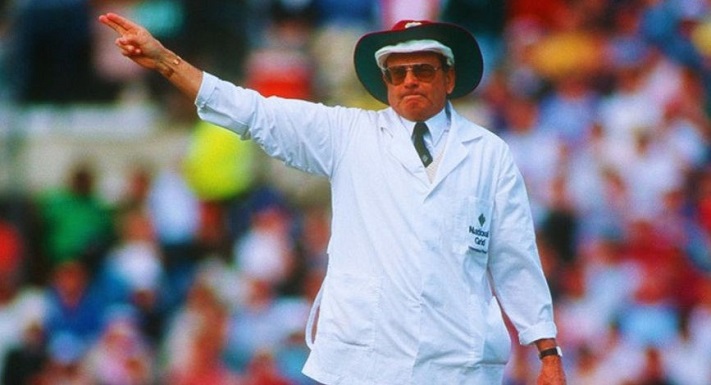
Enjoyed a remarkable 23-year career as a cricket umpire, during which he officiated in 66 Tests and 69 ODIs, including three World Cup finals. His precise decision-making in high-pressure situations earned him the accolade of being a ‘superstar among cricket umpires’ within the cricketing fraternity. In a fitting farewell in 1996, Bird umpired his last Test match at The Lord’s between England and India. The occasion was marked by a guard of honor from the players and a standing ovation from the crowd. Dickie Bird holds the distinction of being the only umpire to have officiated in three World Cup finals, and his record of 66 Test appearances stood as a benchmark at the time of his retirement, further solidifying his legacy in the cricketing world.
David Shepherd (England)
David Shepherd, born on December 27, 1940, in Bideford, Devon, had a multifaceted cricketing career that began as a first-class cricketer for Gloucestershire. For 14 years, Shepherd showcased his skills as a middle-order batsman in county cricket before transitioning to a new role in the sport.
In 1981, Shepherd qualified as an umpire and entered the international stage in 1983 during the World Cup in England, officiating the match between Pakistan and Sri Lanka at Swansea. His debut in Test cricket as an umpire took place during the 1985 Ashes Series, in the fourth Test at Old Trafford, Manchester.
David Shepherd, often remembered for raising his leg whenever the score reached 111, stood in a total of 92 Test matches, the highest for any English umpire, with his final Test appearance in June 2005. Additionally, he umpired in 172 ODIs, including the finals of three consecutive World Cups in 1996, 1999, and 2003.
Beyond his contributions to the game, Shepherd married his longtime girlfriend, Jenny, in 2008. Unfortunately, a year later, he passed away due to lung cancer, leaving behind a legacy as a beloved cricketer and umpire who made significant contributions to the sport.
Simon Taufel (Australia)
Simon Taufel, a prodigious talent in cricket umpiring, made his mark on the international stage at the young age of 27 when he stood in his debut One Day International match between Australia and Sri Lanka on January 13, 1999, in Sydney. His impressive journey continued as he officiated in his first Test match, the Boxing Day Test between Australia and the West Indies in Melbourne, in December 2000. Taufel’s exceptional skills and commitment to the game were recognized with the title of the greatest international cricket umpire of all time, having been awarded the ICC Umpire of the Year five consecutive times from 2004 to 2008.
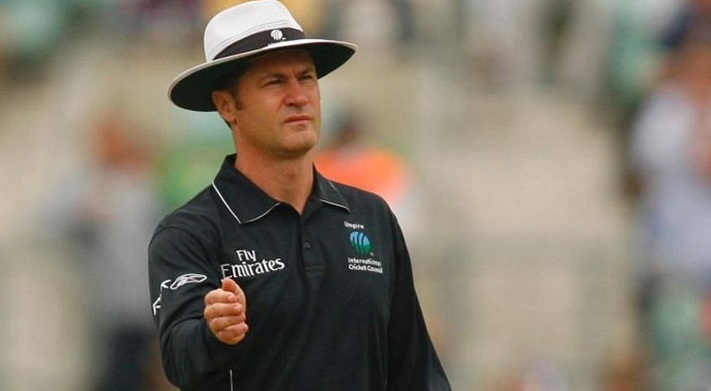
In 2003, Taufel was selected to officiate in the Cricket World Cup, showcasing his capabilities on the grandest stage of the sport. His proficiency extended to the Champions Trophy final in 2004. Notably, Taufel holds the distinction of being the youngest recipient of the Bronze Bail Award from the ICC for officiating in 100 ODIs.
Throughout his illustrious career, Taufel officiated in 174 One Day Internationals, 34 Twenty20 Internationals, and 74 Test matches, leaving an indelible mark on the cricketing world. His dedication to the sport was evident as he announced his retirement from international cricket on September 26, following the 2012 World Twenty20 final, leaving behind a legacy as one of the most accomplished and respected umpires in the history of the game.
Aleem Dar (Pakistan)
Aleem Dar, undoubtedly among the pantheon of the greatest cricket umpires in history, began his journey in international cricket umpiring by standing in his first ODI in 2000 at the age of 32. Two years later, in recognition of his talent, the International Cricket Council (ICC) named him to its panel, marking the start of an illustrious career. His capabilities were evident as he officiated in the 2003 World Cup, and within six months, he was rightfully elevated to the ICC’s top panel.
Aleem Dar’s remarkable contributions to the game were further underscored by winning the prestigious ICC Umpire of the Year Award three times consecutively, from 2009 to 2011. Beyond accolades, he holds the distinction of umpiring in most international games, a testament to his consistency and excellence in decision-making.

In Test cricket, Aleem Dar achieved a milestone that etched his name in the record books. Surpassing Steve Bucknor’s previous record, Dar officiated in his 129th Test match between Australia and New Zealand at the Perth ground. This historic moment not only set a new benchmark but also established Aleem Dar as the first umpire to officiate in the most Test matches, further solidifying his status as one of the preeminent figures in cricket umpiring.
Daryl Harper (Australia)
Daryl Harper, an Australian umpire, holds the distinction of being the first elected to the International Cricket Council’s elite panel of umpires. His service on the Elite Panel of ICC Umpires spanned from 2002 to 2011, showcasing his longevity and expertise in officiating top-level cricket matches. Harper’s journey began with an umpiring role in a One Day International (ODI) between South Africa and New Zealand at Perth in January 1994. He later made his test umpiring debut in the second Ashes test at the WACA ground in November 1998.
Harper’s impact on the global stage was evident as he officiated in the Cricket World Cup’s first game in 2003 and stood in one of the semi-finals, reflecting his standing as a trusted and respected umpire. His 100th ODI officiating moment came during a game between Zimbabwe and New Zealand on August 31, 2005, in Harare, further solidifying his contribution to the limited-overs format.
Throughout his illustrious career, Daryl Harper umpired over 94 Test matches, 174 One Day Internationals, and 10 Twenty20 Internationals. Beyond the statistics, he was highly recognized for his fairness in dealings, leaving an enduring legacy as one of Australia’s pioneering umpires in the international cricketing arena.
Steve Bucknor (West Indies)
Steve Bucknor, often regarded as one of the finest cricket umpires in history, became synonymous with a distinctive mannerism that earned him the nickname ‘Slow Death.’ This moniker was inspired by his deliberate approach to raising the finger, creating a sense of anticipation before signaling a batsman out. Bucknor’s illustrious career spanned from his debut in 1988-89 to his retirement in March 2009. Notably, he holds the distinction of being the only umpire to officiate in both cricket and football World Cups. His incredible feat includes standing in five cricket World Cup Finals and being a fully qualified referee involved in the qualifying stages of the 1978 football World Cup.
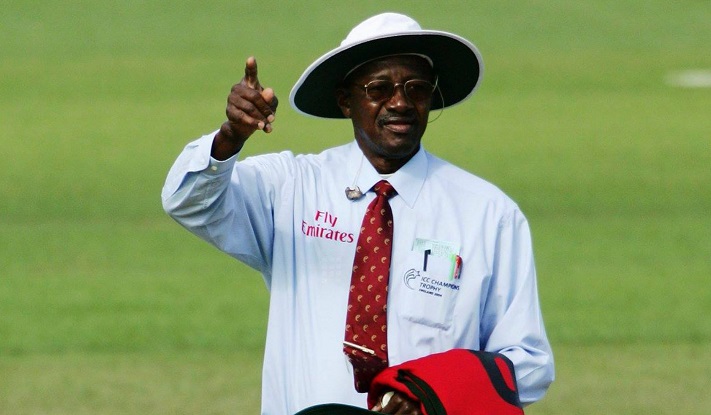
Steve Bucknor reached another milestone by becoming the first umpire to stand in 100 Test matches, a testament to his consistency and reliability. This impressive journey encompassed 14 Ashes Tests and spanned from his debut in 1988-89 to his 128th Test in 2005. Bucknor officiated in his final match, an ODI between the West Indies and England, on 29 March 2009. In a fitting tribute, both teams formed a guard of honor to applaud the umpire as he left the field, marking the end of an era for one of the most respected figures in cricket officiating.
Billy Bowden (New Zealand)
Billy Bowden, hailing from New Zealand, is widely recognized for his unique and dramatic umpiring style, particularly the use of the “crooked finger of doom” as part of his signaling. His foray into international cricket umpiring began in March 1995 when he officiated his first One Day International between New Zealand and Sri Lanka at Hamilton. Subsequently, in March 2000, Bowden marked his debut as an on-field umpire in Test cricket, and by 2002, he earned a spot on the Emirates Panel of International Cricket Umpires.
Billy Bowden’s notable contributions extended to the global stage as he was selected to officiate at the 2003 World Cup, including serving as the fourth umpire in the Australia vs India final. In January 2007, during the New Zealand and Sri Lanka game at Hamilton, Bowden achieved the distinction of becoming the youngest umpire to officiate in 100 ODIs.
Since joining the Elite Panel of ICC Umpires in 2003, Bowden officiated in a remarkable 82 Test matches, 192 One Day Internationals, and 21 Twenty20 matches, showcasing his versatility and adaptability across formats. An enduring figure in international cricket umpiring, Bowden reached a significant milestone by umpiring his 200th One Day International match on February 6, 2016, during the clash between New Zealand and Australia in Wellington, further cementing his legacy as a charismatic and respected umpire.
Darrell Hair (Australia)
Darrell Hair, an Australian umpire, embarked on his umpiring career in January 1992, overseeing a Test match between Australia and India in Adelaide. Despite a career marked by notable achievements, his tenure was not without controversy. One such instance occurred during the fourth day of the fourth Test between England and Pakistan at The Oval in 2006.
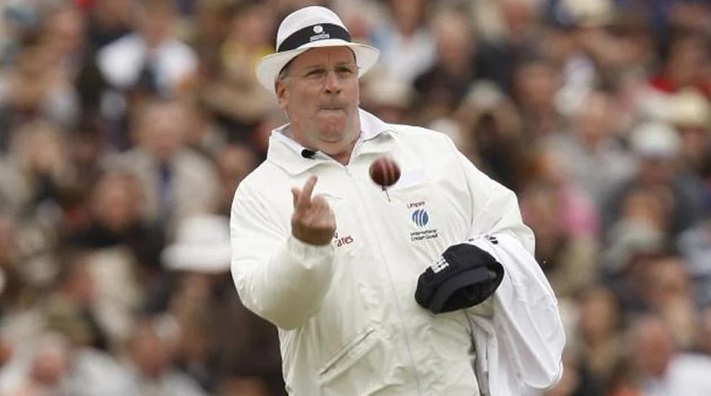
Hair, along with colleague umpire Billy Doctrove, accused the Pakistani squad of ball-tampering, leading to England being awarded five penalty runs and a replacement ball. The decision prompted a strong protest from the Pakistani players, who refused to take the pitch after the tea break. The aftermath saw Hair’s actions scrutinized at an ICC board meeting, resulting in a resolution that he should not umpire matches involving test-playing nations in the future.
Subsequently, on August 22, 2008, Hair chose to resign from the ICC to pursue a coaching post. Before his resignation, Hair had officiated in 78 Test matches, 141 One Day Internationals, and 6 Twenty20 Internationals, leaving behind a complex legacy that includes both significant contributions to the game and moments of intense controversy.
Tony Hill (New Zealand)
Born in 1951 in Auckland, New Zealand, Anthony Lloyd Hill, widely known as Tony Hill, left an indelible mark on the international cricket umpiring scene.
Hill’s journey as an umpire began in March 1998 when he made his debut officiating an ODI between New Zealand and Zimbabwe at Napier. His ascension continued, and in December 2001, he officiated in his first Test match between New Zealand and Bangladesh at Hamilton.
During his tenure on the International Umpire Panel, the ICC often appointed Hill to matches away from New Zealand as a neutral umpire, supporting the Elite Panel. Notable highlights include officiating the third Test between South Africa and Australia at Johannesburg in March 2006 and serving as the on-field umpire in three Group A matches at the 2007 Cricket World Cup in St. Kitts.
Tony Hill’s international umpiring career saw him officiate in 40 Test matches, 96 ODIs, and 17 T20 Internationals. His consistent and reliable performances earned him a well-deserved place in the ICC Elite Panel of umpires in 2009, solidifying his status as one of the esteemed figures in the cricket umpiring fraternity.
Rudi Koertzen (South Africa)
Rudi Koertzen recognized for his pinpoint decision-making and trademark slow finger lift, etched his name among the cricketing greats during his umpiring career. Making his mark alongside illustrious contemporaries, Koertzen became the second umpire, after Steve Bucknor, to achieve the milestone of standing in 100 Test matches. His memorable career culminated with a total of 108 Test appearances, a testament to his consistency and expertise on the field.
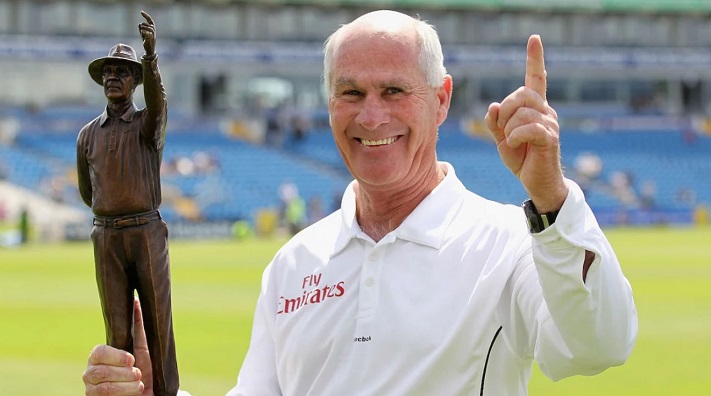
Koertzen’s influence extended beyond Test cricket as he officiated in both the 2003 and 2007 Cricket World Cups, featuring in on-field roles during the semi-finals and serving as the third umpire in the finals. His proficiency was further highlighted in the Champions Trophy finals of 2004 and 2006, where he officiated as the on-field umpire. In ODIs, Koertzen set a record by officiating in an impressive 209 matches, surpassing David Shepherd’s previous mark of 172 ODIs.
In 2002, Koertzen received official recognition as the best umpire in cricket, a testament to his outstanding contributions to the game. His achievements were further celebrated with the ICC Golden Bails Award for 100 Tests, the ICC Bronze Bails Award for 100 ODIs, and the ICC Silver Bails Award for 200 ODIs. Remarkably, Rudi Koertzen remains the only umpire to have earned all three of these prestigious accolades, solidifying his legacy as one of the most accomplished officials in cricket history.
The Best Umpires In Cricket In India
In a country where cricket is the favorite sport for millions of people, there is a need for many umpires. In India, umpires are often former cricketers, both professional and amateur. And also those who have been fans of this game since childhood and perfectly know its rules and subtleties.
Srinivas Venkataraghavan
Considered one of India’s greatest spinners, Srinivasaraghavan Venkataraghavan transitioned to umpiring after a stellar playing career. Born in 1945, Venkat officiated in his first ODI in January 1993 between India and England at Jaipur and made his Test debut as an umpire in the same month during the India-England Test in Kolkata. In a distinguished umpiring career spanning over a decade, Venkat officiated 73 Tests and 52 ODIs, including 6 Ashes series and 3 Cricket World Cups between 1996 and 2003. He served as the third umpire during the 1999 World Cup Final between Australia and Pakistan. Venkataraghavan was inducted into the inaugural ICC Elite Panel of Umpires in 2002, making him the first Indian umpire to achieve this honor. He left the panel following his retirement from umpiring in 2004.
S. Ravi
Sundaram Ravi, born in Bangalore in 1966, is widely regarded as one of the finest umpires in present times. He umpired his first international match, a T20I between India and England, at the Eden Gardens, Kolkata, in 2011.
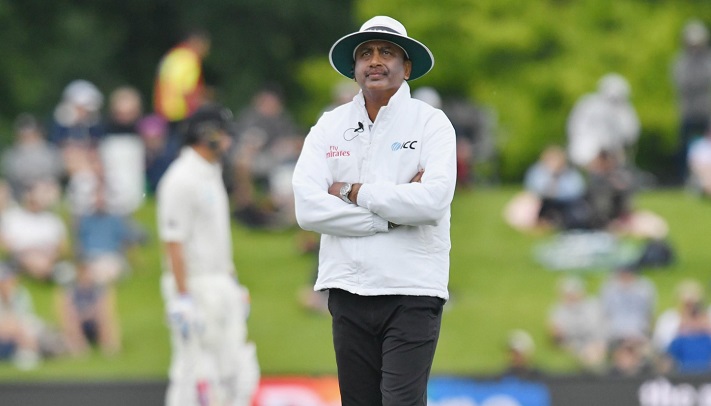
Ravi has officiated in 14 Test matches between 2013 and 2016, with his most recent Test being the final Test of the Australia-Sri Lanka series. Umpiring 26 ODIs, his most recent ODI was in February between New Zealand and Australia at Wellington. Having officiated in 66 IPL matches, Ravi is second in the list of most IPL matches umpired, following former Sri Lankan spinner Kumar Dharmasena. Ravi was inducted into the ICC Elite Panel of Umpires in 2015, becoming the second Indian umpire to achieve this status.
Amish Saheba
Born in Ahmedabad in 1959, Amiesh Saheba, a former Gujarat player, transitioned to become one of India’s highly regarded umpires. He played 15 first-class matches for Gujarat between 1983 and 1990. Saheba umpired his first international match in 2000 between India and Zimbabwe at Rajkot and went on to officiate in 51 ODIs. His 50th match came between England and South Africa at the 2011 Cricket World Cup in Chennai. Saheba officiated 3 Test matches from 2008-2009 and 4 T20Is between 2007 and 2009. He umpired two group games at the 2009 ICC World Twenty20 and officiated in a total of 27 IPL matches between 2008 and 2011.
V.K. Ramaswamy
Born in Madras in 1949, V.K. Ramaswamy started umpiring in the early ’70s, overseeing numerous matches in the Indian domestic circuit. His first international match as an umpire was an ODI between India and West Indies at Vadodara in 1983. Ramaswamy umpired a total of 43 ODIs until 2002, including nine World Cup matches in 1987 and 1996. He officiated the famous West Indies-Kenya match at the 1996 World Cup, where Kenya surprisingly beat the eventual semi-finalists. Ramaswamy’s first Test match as an umpire was in 1985 between India and England at Chennai, and his 26th and final Test came in 1999 between India and New Zealand at Ahmedabad. Hailed as a “top-class” umpire by Wisden.
Shaver Tarapore
Born in Calcutta, Shavir Tarapore, aged 58, comes from a cricketing background, with his father, Mr. Keki Tarapore, being a former cricketer and Rahul Dravid’s childhood coach. Tarapore played six first-class matches for Karnataka from 1980-1987 before transitioning to umpiring. His first international match as an umpire was in 1999, officiating in an ODI between India and New Zealand in Hyderabad. Tarapore officiated 25 ODIs, including four group-stage games at the 2011 Cricket World Cup. He also officiated four Test matches in 2011 and umpired in 31 IPL matches between 2009 and 2012. His final T20 match as an umpire was at the 2010 ICC World Twenty20 between Pakistan and Australia at Gros Islet.
What Needs to Become a Good Umpire In Cricket?
Qualifications and requirements for becoming a cricket umpire can vary based on the cricket board or organization overseeing the process.

However, some common steps and qualifications include:
- Age and Fitness: Umpires are generally required to be in good physical condition. While there is no strict age limit, a certain level of fitness is often expected.
- Knowledge of the Game: A deep understanding of the rules and nuances of cricket is crucial. Umpires need to have a comprehensive knowledge of the laws of cricket.
- Officiating Courses: Many cricket boards and organizations offer umpiring courses and workshops. Completing these courses can provide aspiring umpires with the necessary knowledge and skills.
- Practical Experience: Officiating in local and lower-level matches helps aspiring umpires gain practical experience. This experience is often a requirement for advancement.
- Formal Qualifications: Some cricket boards may require formal qualifications or certifications, such as passing exams related to cricket laws and umpiring.
- Communication Skills: Good communication skills are essential for an umpire to effectively convey decisions and interact with players on the field.
- Understanding of Technology: With the increasing use of technology in cricket, umpires may need to be familiar with tools like the Decision Review System (DRS) and Hawk-Eye.
- Registration and Accreditation: Umpires may need to register with the relevant cricket board or association and obtain the necessary accreditation to officiate in official matches.
Worst Umpires In Cricket
It is difficult to judge the best if there are no comparisons with the opposite. Therefore, here is a list of umpires who have been repeatedly criticized for their mistakes. In any sport, such a mistake can lead to the team losing the match. A lost match means that the team will not have enough points in the standings, and as a result, it may leave the competition or not receive the cup. Therefore, a huge responsibility lies on the shoulders of the umpires: they must monitor the game very carefully and make decisions impartially.
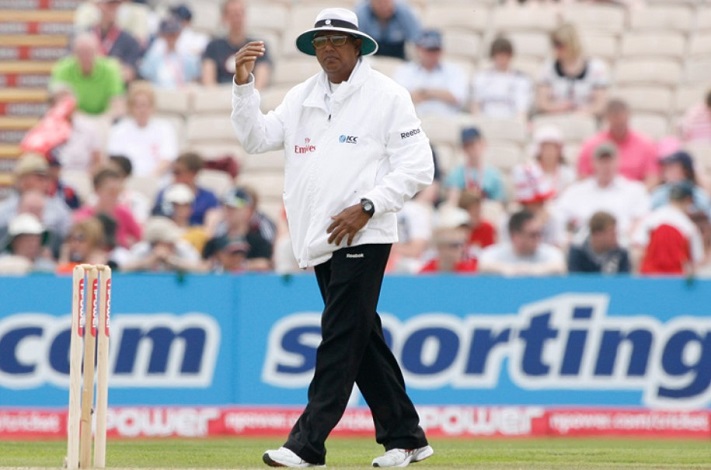
So, here is the list of the worst cricket umpires:
- Asoka de Silva (Sri Lanka): De Silva faced criticism for his decisions during key moments in matches, leading to questions about his judgment and the impact on the outcome of games.
- Ian Gould (England): While respected for his long career, Gould received criticism for various decisions, and some believed that his umpiring style lacked consistency.
- Chris Gaffaney (New Zealand): Gaffaney has been criticized for decisions that were perceived as inconsistent or incorrect, raising concerns about his suitability for high-profile matches.
Cricket Umpires Salaries
Here are the salaries of a few elite cricket umpires:
| Name | Yearly Salary, Rs |
| Richard Kettleborough | 2 500 000 |
| Ian Gould | 2 500 000 |
| Richard Illingworth | 2 500 000 |
| Paul Reiffel | 3 121 000 |
| Rod Tucker | 2 500 000 |
| Bruce Oxenford | 2 500 000 |
| Nigel Llong | 3 121 000 |
Conclusion
A cricket umpire is no less important a participant in a sporting event than the players. The outcome of the match depends on his physical fitness, attentiveness, and knowledge of the rules. Good umpires who have undergone training and gained a lot of experience can earn millions of rupees in a year.
To become an umpire, you need to take courses at the academy and pass an exam. After passing the exam, the local cricket association will assign you to small matches first.
Top 10 Best Umpires Of All Time In Cricket Video
FAQ
Who is the best umpire in cricket history?
Dickie Bird from England is widely regarded as the best cricket umpire of all time.
How hard is it to become a cricket umpire?
It’s not difficult: you need to take a course, have a perfect knowledge of the rules, be in good physical shape, and get accreditation from the local cricket association so that the body can appoint you to referee for local matches.
What is an umpire call in cricket?
“Umpire’s call” in cricket refers to a situation where the on-field umpire’s original decision stands after a review because the technology used to assess the decision deems it to be inconclusive or within a margin of uncertainty.
How can I find the cricket umpire course?
Courses for umpires are conducted by organizations accredited by the national regulatory body (for example, BCCI in India). Search your search engine for “cricket umpire courses in your city.” If there is an academy in your city, you will receive a link to it.
Can you do a cricket umpire course online?
Umpire education is usually conducted in the form of lessons with some online and some in person.
How to get an umpire job in cricket?
In India, first, you need to learn the rules, register with the State Cricket Associations, and take a written and verbal examination. You then need to officiate in local cricket matches, and gradually pass the BCCI Level 1 & Level 2 examinations to get empanelled with BCCI as an Umpire.
What is an umpire’s salary in international cricket?
For Test matches, umpires can earn around 40,000 to 60,000 rupees per match. One-Day Internationals (ODI) and Twenty20 (T20) games offer similar pay scales ranging from Rs 30 000 to Rs 50 000 per match.
What is an IPL cricket umpire’s average salary?
On average, the umpire’s salary in IPL is from $700 for beginners to $3000 for elites per match.
What is the cricket umpire hand shield?
During the game, the ball may fly towards the referee. For protection, the judge wears a shield made of plexiglass on his arm. You can use it to protect yourself from a flying ball.
Who is the richest umpire in cricket?
Richard Kettleborough from England. His yearly salary is around 25 000 000 Rs. For one Test Match, he gets around 200 000 Rs, for ODI — 150 000 Rs, and for T20I — 70 000 Rs.
Who was the first woman umpire in cricket?
In Namibia, on 27 April 2019, Claire Polosak became the first woman to umpire a men’s ODI. She stood in a one-day match between Oman and Namibia.
How many umpires in cricket?
Two umpires, one for each end of the field. And one or two umpires off-field.
Who is the third umpire in cricket?
He’s an off-field referee. He monitors the game with cameras and helps resolve controversial issues using replays, slow motion, and shooting from different angles.
Who is the 4th umpire in cricket?
The fourth umpire is usually needed in international matches. He helps the other umpires. He also acts as a reserve referee.
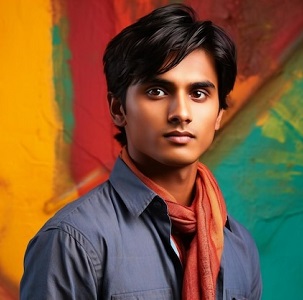
Satish, a prolific author hailing from India, has become a prominent figure in the world of online sports betting. With a deep passion for both sports and data analysis, he has carved out a niche for himself as a trusted source of information and insights in the ever-evolving landscape of sports betting.
Satish’s articles are known for their in-depth analysis, statistical rigor, and keen eye for emerging trends, making him a sought-after authority in the field. His work not only informs but also empowers sports enthusiasts and bettors, providing them with valuable knowledge to make informed decisions in the world of online sports wagering.
